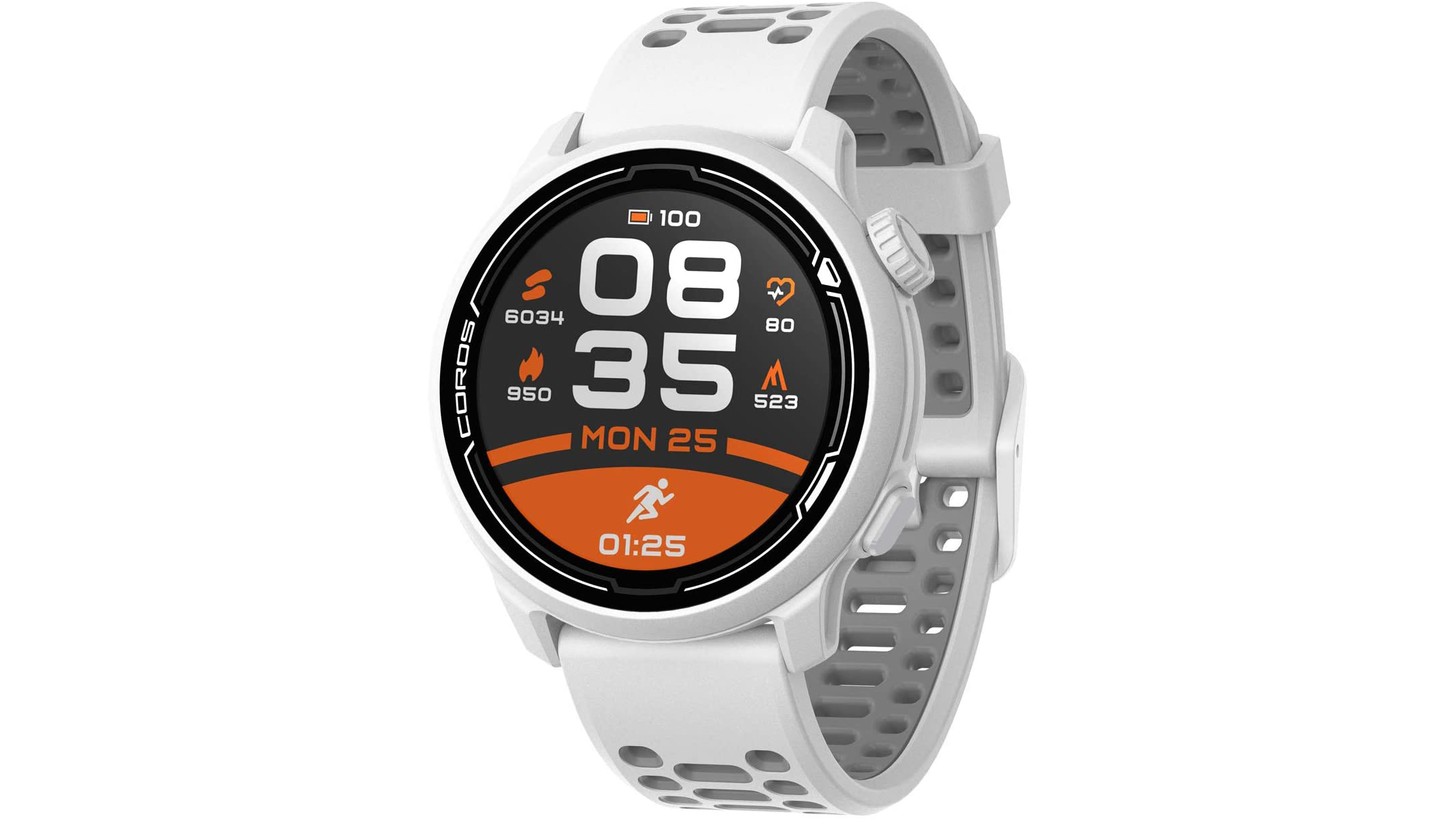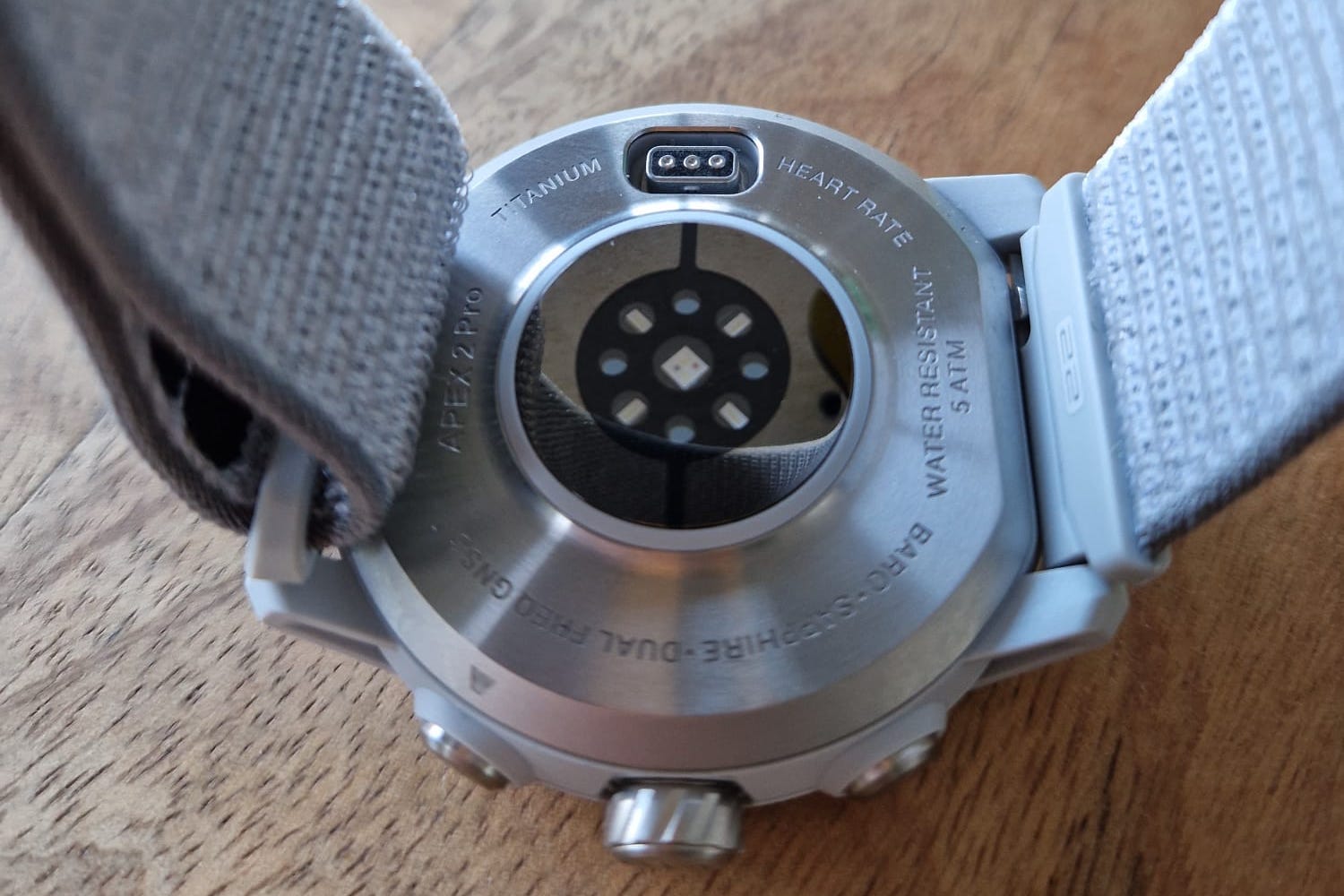Coros Apex 2 Pro review
The watch used by ultra-running legend Kilian Jornet is strong, but is it good enough to outperform its rivals?

Coros has gained a foothold in the multisport watch market with three biggies: a great price, strong feature list and long battery life.
You only have to look at the Coros Pace 2 for evidence of that impressive trinity.
Coros Apex Pro 2 review
The price of the Apex Pro 2 is in Garmin Forerunner 955 and Polar Vantage V2 territory and, visually at least, it doesn’t match their slightly more premium aesthetic.
It’s sleek at 53g but the nylon strap, which is comfortable and usable, is flimsy looking.
What’s new?
But what lies beneath? More precisely, what’s been upgraded since edition one? Well, Coros has upgraded to multi-band GPS, meaning better satellite pick-up and retention.
This certainly proved the case on our Severn Channel exposed runs but wasn’t quite as impressive in the sheltered streets of Bristol. Okay, though not a gamechanger.
The heart-rate sensor’s changed, too, and now features a five LED system with four photodetectors. In theory, the more LEDs the better, and it was accurate enough, although occasionally wandered on harder efforts.
The Apex 2 Pro also comes with heart rate variability (HRV) data, which, unlike many that work in the background, is manually done. Simply wake up, take a quick measurement and see how prepped you are for the day. Like many features, the more you use it, the more useful it is for gauging training readiness.
You can also check your blood oxygen levels (SpO2), which is useful for seeing how you’ve adapted to altitude. That said, we’re sceptical of its accuracy, as SpO2’s typically measured via a pulse oximeter clipped onto the finger rather than via shining a light on the wrist and there’s a lack of independent support.
Impressively, you can add up to 30 courses on the Coros app, which you can load to the Apex Pro 2 one at a time. You can then move the map around via touchscreen, albeit that’s the only time you can use touch. For the most part, you’re utilising the highly usable digital crown.
Performance features

Like many Coros watches, it features a tonne of training information to feed back into your performance.
There’s general Training Status, SevenDay Training Load, Training Focus and much more that’s useful on the watch but taken to another analytical level on the extremely usable Coros app.
You can use it in the pool and open water. It performed solidly in the pool but we didn’t have chance to use it outdoors. From other user reviews, it’s okay but reportedly becomes confused when treading water.
On the bike side, it has Bluetooth so you can pair it with most power meters, but there’s no ANT+ so some might miss out. The run data includes power, which’ll appeal to many.
Finally, battery life comes in at 75 hours for standard GPS, but this drops to 26 hours when using multi-band GPS.
Verdict: Fine multisport watch, though is swimming against many rivals at this price point.
Score: 77%
For a little less, consider…
Coros Pace 2

This little powerhouse has been a firm favourite in the office for a couple of years now, largely because you get a fantastic array of features for a decent price.
Those include multiple activity profiles, including triathlon, over 200 strength training exercises, plus all the metrics we’ve become accustomed to when recording activities.
It weighs just 29g and is operated via a single button and dial on one side, which proved easy enough to use in testing.
Add in some solid GPS and HR accuracy, plus 30 hours of battery life in GPS mode and you’re seemingly onto a brilliant value buy.
Read our full Coros Pace 2 review for more info.







